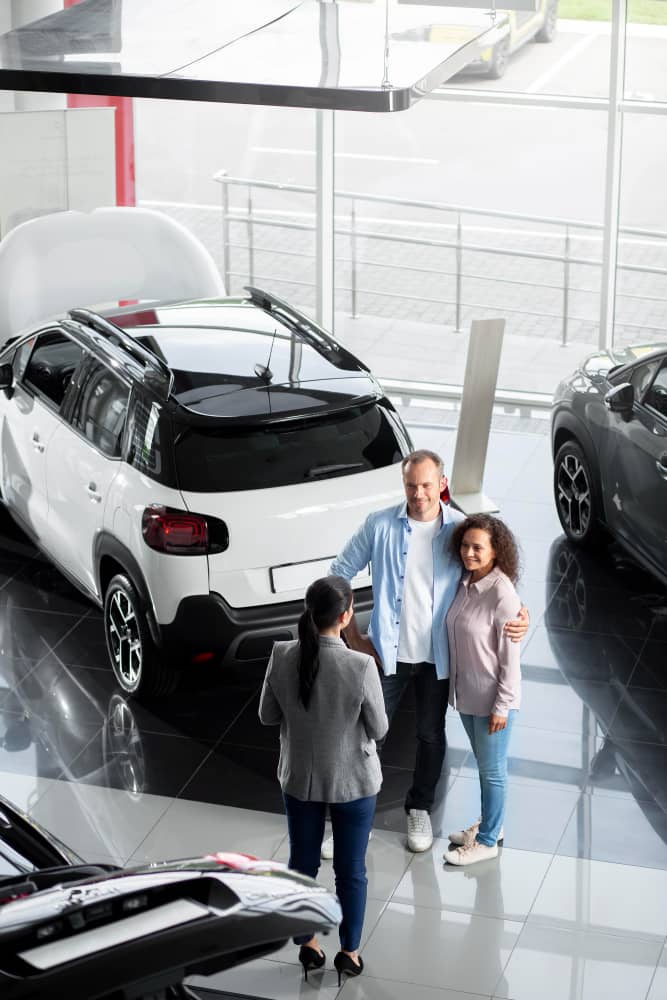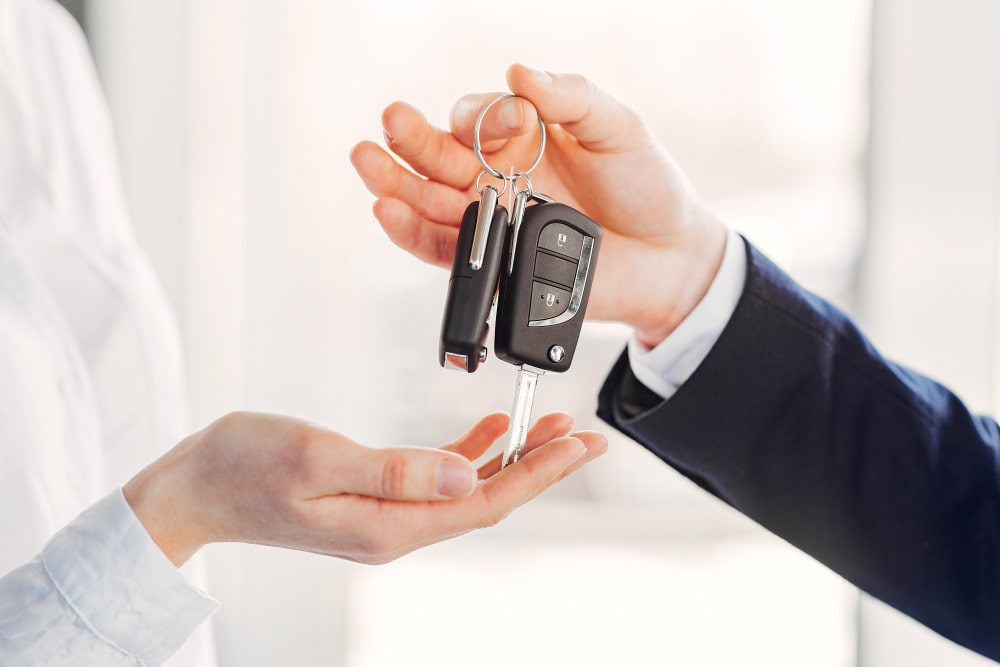Automotive

Driving Excellence
As the Gulf Cooperation Council’s second-largest automotive hub, the UAE shines as a pivotal player in the Middle East’s car industry. Bolstered by rising per capita income, state-of-the-art road infrastructure, and a favourable tax regime, the nation’s automotive sphere continues its robust growth trajectory. Within this expanding milieu, luxury cars have emerged as more than mere vehicles; they symbolise affluence and discernment. Modern luxury vehicles, enhanced with the latest entertainment and safety features, now constitute almost 15% of the UAE’s car market.
In the realm of luxury, SUVs — a harmonious blend of opulence and utility — lead the charge. They accounted for a significant 60% of the luxury car sales in 2021. As we steer towards 2027, the forecast suggests an impressive 8.5% growth in luxury car sales, introducing an estimated 0.3 thousand new luxury vehicles to the UAE’s roads. The charm of luxury isn’t confined to the latest models; the pre-owned luxury sector is witnessing a significant upswing. This growth can be attributed, in part, to reputable dealerships that offer unmatched value, with luxury SUVs commanding a striking 62% share in the second-hand market.
As global automotive giants like BMW and Toyota continue to cast influential shadows, it’s the unwavering dedication to excellence by local dealerships that ignites the aspirations of luxury car enthusiasts in the UAE.
Dubai’s automotive industry has faced significant challenges in recent years. One of the primary pain points has been the impact of global economic fluctuations, which affected consumer confidence and purchasing power. Additionally, the introduction of value-added tax (VAT) in 2018 added an extra layer of complexity for consumers and businesses alike, resulting in a slowdown in vehicle sales. Moreover, the COVID-19 pandemic further strained the market, with lockdowns and travel restrictions reducing demand and disrupting supply chains.
However, the Dubai automotive market is showing signs of recovery. Government initiatives such as the reduction of customs duties and fees on electric vehicles (EVs) have incentivized the adoption of sustainable transportation solutions. Furthermore, the Emirate’s focus on becoming a global hub for EVs and autonomous vehicles has attracted significant investment, promoting innovation and job creation. While challenges remain, Dubai’s automotive industry is adapting to new market dynamics and positioning itself for a more resilient and sustainable future.
Dubai’s automotive industry has displayed remarkable resilience in the face of various challenges. One of the major pain points has been the fluctuating oil prices, which have traditionally influenced consumer preferences towards larger, fuel-inefficient vehicles. However, Dubai’s government has responded by promoting eco-friendly vehicles and investing in charging infrastructure to reduce the industry’s reliance on fossil fuels. Furthermore, the rising global concern for environmental sustainability has pushed the market to adopt cleaner technologies and explore electric and hybrid vehicle options.
The ongoing recovery of Dubai’s automotive sector is marked by innovative approaches. The growth of ride-sharing and car-sharing services has gained traction, particularly among younger urban dwellers. Additionally, the market has witnessed an influx of advanced driver-assistance systems (ADAS) and connected vehicle technologies, enhancing safety and convenience. Dubai’s automotive industry is adapting to changing consumer preferences and technological advancements, ensuring its continued success and relevance in the evolving mobility landscape.
Dubai’s automotive industry is shaping a promising future despite several historical challenges. One significant pain point has been the intense competition among luxury automakers, which has led to pricing pressures and a demand for exceptional customer experiences. However, Dubai’s market has responded by emphasizing personalization and providing exclusive services, fostering brand loyalty and driving sales. Additionally, the push towards autonomous vehicles and smart infrastructure presents an opportunity for Dubai to establish itself as a global leader in cutting-edge automotive technology.
The current state of Dubai’s automotive market reflects a dynamic and forward-thinking industry. The adoption of electric and autonomous vehicles is rapidly gaining momentum, with the government’s commitment to creating a supportive ecosystem. Moreover, Dubai’s strategic location as a trading hub and its business-friendly policies continue to attract international players, ensuring a steady flow of innovation and investment. In this ever-evolving landscape, Dubai’s automotive industry is poised to be at the forefront of the global automotive revolution.
Driving Forward: Key Trends
Resilient Market Dynamics
UAE's auto sector adapts, seeing a pre-owned car surge. Adaptability meets demand.
Dominance of Quality Brands
Esteemed brands like Toyota and Land Rover lead, showing UAE's trust in top-notch vehicles.
Expanding Consumer Palette
Car buyers in the UAE now lean more towards luxury vehicles and SUVs. Taste evolves.
SUVs in the Limelight
UAE's marked preference for SUVs indicates a blend of stature and functionality.
Digital Evolution
Increased digitalization shifts consumer habits, changing how they research and buy.
Innovation in Mobility Choices
Shared mobility and EVs rise, painting a picture of a future-ready UAE.
Emerging Dynamics

Transition to Online Research

Integrated Online-Offline Experience

Pre-owned Car Dominance

Endorsed Pre-Owned Ventures

Leanings Towards Shared Assets

Projection of EV Integration

Direct Outreach & Service Transformation

Revenue Diversification Imperative

Service Augmentation
Charting New Horizons: The UAE's Evolving Automotive Ecosystem and Commitment to Green Mobility
The automotive landscape of the Middle East, with the UAE at its epicentre, is poised for transformative changes in the upcoming years. The consistent recording of 2–3 million light vehicle sales annually and the staggering fleet of approximately 35 million passenger cars underline the region’s dynamic vehicular market.
A particularly intriguing facet of this market is the burgeoning prominence of used car transactions. The UAE’s stats are compelling: with over 800,000 used cars sold in 2019, the country showcases a noteworthy 3.5:1 ratio of used to new car sales. This trend isn’t merely a fleeting one. Predictions forecast a sustained rise, with used car sales expected to breach the 1 million mark annually by 2025.
However, this momentum in the auto sector isn’t just about numbers and sales. The nation is on a determined trajectory towards a greener future. Public entities in the UAE, especially emirates like Dubai, are championing the green mobility cause. Ambitious initiatives like swapping traditional taxi fleets for electric and hydrogen variants, and the setup of over 300 charging stations, herald a new era of sustainable transport. Furthermore, governmental plans to elevate electric and hybrid vehicle procurement to 30% by 2030 reaffirm the nation’s commitment. These steps align seamlessly with the UAE’s overarching goal: achieving net-zero emissions by 2050.
In essence, the UAE’s automotive domain is not only expanding but also evolving with a clear vision – a synergy of market demands and sustainable aspirations.





